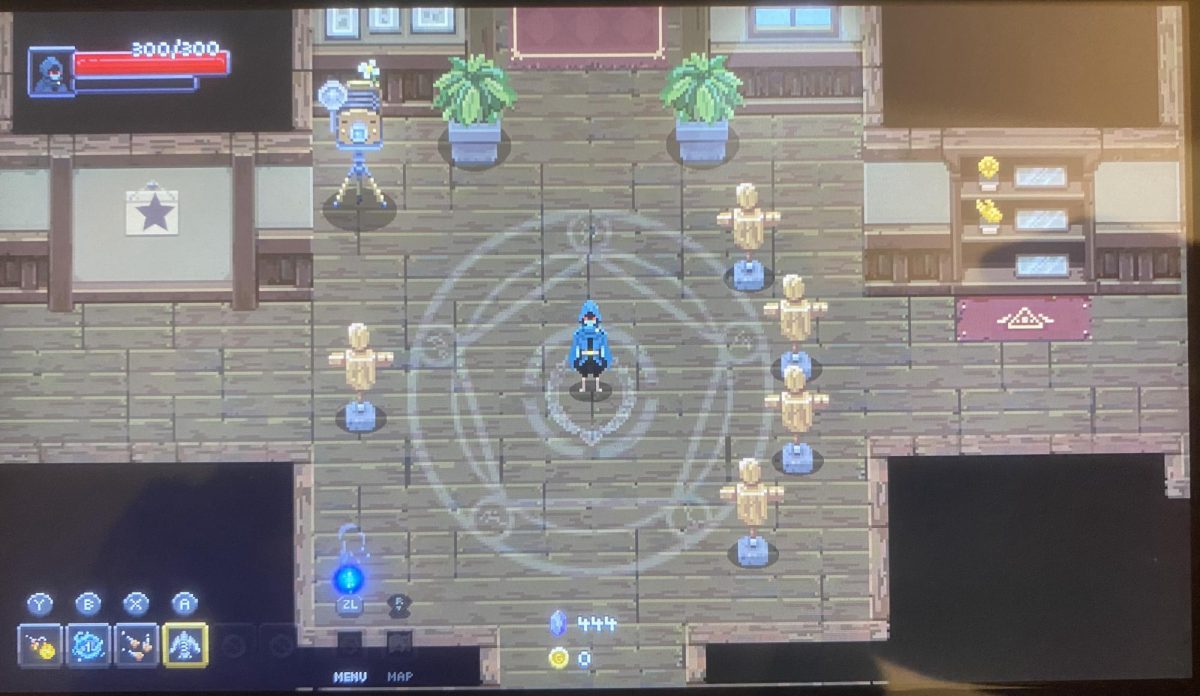As an eight-year-old, I loved the same video games most other kids loved — open-world, role-playing games, such as “Legend of Zelda: Breath of the Wild.” These games helped me escape the daily routine of my life by immersing myself in the character I played, allowing my imagination to run wild. I imagined myself as the main character of the game, Link, the hero who woke up from his 100-year slumber to defeat the four divine beasts controlling the regions in the kingdom of Hyrule. I could see myself in Link’s shoes, climbing over rocks, jumping off of trees, and engaging in perilous battles against the monsters of the night.
However, I eventually got used to the attack patterns of the enemies I encountered, and the fantastical landscapes stopped possessing the same beauty they did when I first encountered them in-game. As I got older and more familiar with my favorite games, they stopped serving as tools to destress and the tasks the game gave began to feel tedious instead due to how bored I felt of the game. I wanted something different, something new and exciting, something that could take me back to the moment when I first entered the expansive terrain of “Breath of the Wild,” feeling as though it was man against the world, about to delve into the dangerous lands that lay before me, armed with nothing but the clothes on my back.
That wish finally came true when I found an underrated indie game known as “Wizard of Legend,” a rogue-like game with a design that requires you to start over every time your character dies. The 8-bit graphics and flashy visuals depicted by the short trailer I found on the Nintendo Switch store compelled me to buy the game. After a few hours of playing it, I quickly realized that this game was going to be one of the hardest I’d played in my life.
For the first 40 hours, I banged my head against the wall trying to get past the first boss. Even when I made progress, it was very minimal. Usually getting past the first boss resulted in me losing against the next mini-boss or facing a sudden swarm of enemies that would stun-lock—to render (a character) unable to move or react by repeatedly hitting them and keeping them in a stunned state—my character until death. Just like many activities that were too hard for me when I was younger, like Soccer and Cricket, I dropped “Wizard of Legend” in a similar fashion.
Most people would give up entirely after investing so much time only to get nothing back, but with more free time in my childhood, I was drawn to the challenge and was firm in my resolve to endure the grueling gameplay. In fact 43% of MVHS students prefer playing easier video games rather than more challenging video games. If it wasn’t for the free time I had when I was a child, I wouldn’t have learned about the cycle of failure and success and before I knew it, I had sunk an additional 10 hours into the game, and the real fun began.
I breezed past the first few levels, but later bosses pushed my mechanical skills to the limit. Every combo — a set of actions performed in sequence — I would land and every attack I would dodge was challenging and led me closer to completion. When I reached the last phase of the final boss fight, every button press had to be timed perfectly and any slip-up would result in instant death.
In the previous games I played, such as “Legend of Zelda: Breath of the Wild,” I would feel a short injection of happiness when I completed a puzzle or discovered a new region, and as this happened frequently this kept me satisfied for some time. In the same way, most people in real life are used to having regular progress when putting in effort into mastering a subject. However, rogue-like games taught me that even after putting in effort into any skill, there are times when progress won’t be realized, and subsequently, there is nothing that can be done to recover that lost time.
“Wizard of Legend” captivated me because of its ability to overcome a common flaw that most video games suffer from — replayability. Rogue-like games naturally have replayability built into their systems, the reason being that it takes the user a long time to get a grasp of the mechanics. “Wizard of Legend” provided a parallel to the other experiences I would have in the real world as it takes many hours in order to truly master a skill, The tension that comes from the looming threat of losing a one-hour run to a stray attack out of nowhere keeps the player on their toes, while simultaneously increasing the player’s power through better spells and higher stats to match the challenge. The flow-state—a mental state in which a person is completely focused on a single task or activity—achieved after putting in those initial hours also immerses players deep into the gameplay, in a way that’s unrivaled by any other genre.
Over time, I realized that the game I hated due to how many times I would fail had become a game I loved for the same reason. By putting in the time, I had gotten to a skill level where the game wasn’t too hard that I would die immediately, but not too easy to where it became predictable. At the time, I thought only video games could give me this satisfaction, but as I started to try more extracurricular activities, I realized that the same pattern of banging my head against the wall until I found a solution was met in the other hobbies I did such as table tennis.
In table tennis, although I had a very good grasp of the techniques used in the game, I lacked experience playing against a variety of playstyles which made my overall level in the game worse than I had expected. Similar to my experience in rogue-like games, the only solution to circumvent this problem was to repeatedly lose against a variety of people so that I could learn their patterns and eventually win.
Though there are times when even after putting in the effort, the result I expected simply didn’t appear, these experiences have helped me realize that I can only accept what I’ve managed to achieve and try again and again, so that when the gratification eventually comes, succeeding feels much better than it would if I hadn’t needed to fight for it.










